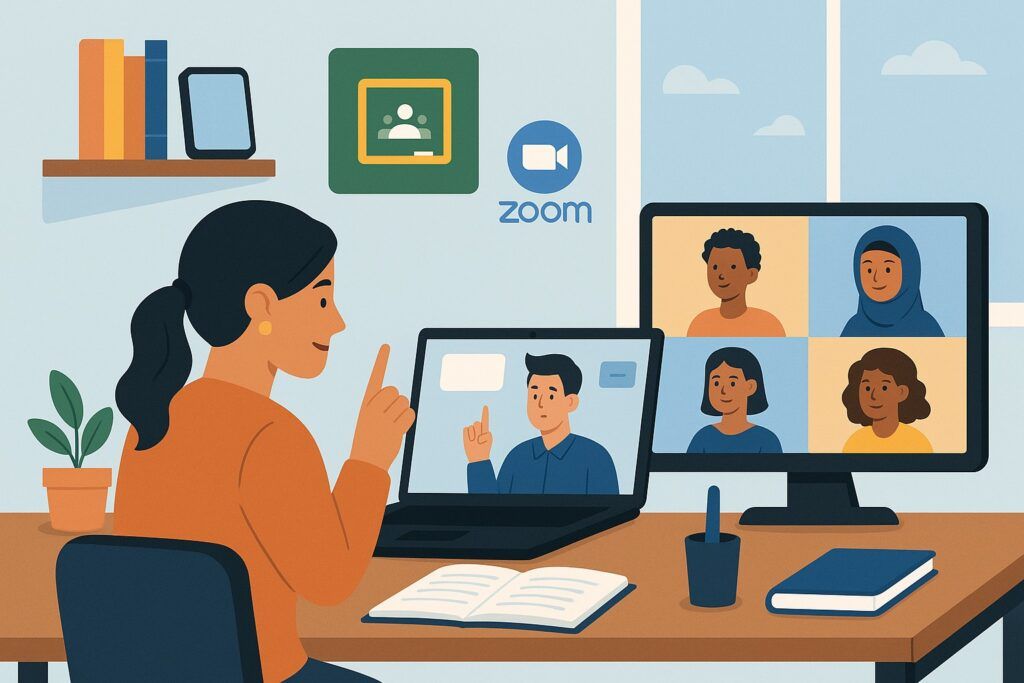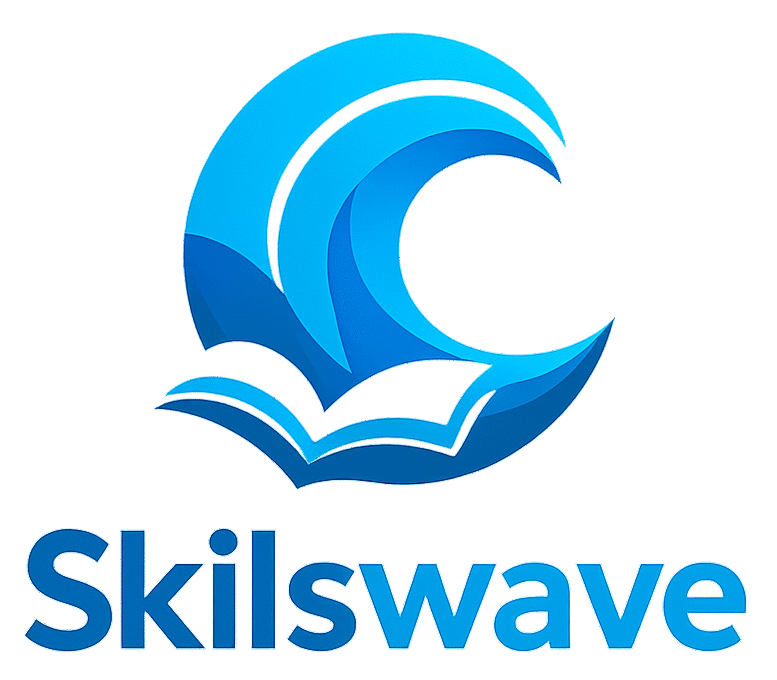Introduction
Teaching has always been about adapting. From chalkboards to smartboards, from textbooks to tablets, educators have consistently embraced new ways to enhance learning. In today’s rapidly evolving world, online courses are one of the most powerful tools available to teachers who want to improve their classroom skills.
Whether it’s mastering new technology, learning innovative teaching methods, or keeping up with the latest subject knowledge, online learning provides teachers with flexible, affordable, and practical opportunities to grow. This article explores how teachers can use online courses to upgrade their classroom skills in 2025 and beyond.
Why Teachers Need Continuous Professional Development
The teaching profession is unique because the audience—students—keeps changing. Every new generation of learners comes with different expectations, learning habits, and technological comfort levels. Continuous professional development (CPD) ensures teachers:
- Stay current with educational trends and policies.
- Learn new digital tools for hybrid and remote teaching.
- Improve student engagement through creative strategies.
- Develop soft skills like leadership, cultural awareness, and emotional intelligence.

Benefits of Online Courses for Teachers
1. Flexible Learning
Teachers often struggle to balance lesson planning, grading, and personal life. Online courses allow them to learn anytime, anywhere, fitting education into their busy schedules.
2. Cost-Effective Professional Growth
Unlike traditional workshops or advanced degrees, online courses are often affordable—or even free. Platforms like Coursera, edX, and FutureLearn offer certificates that can strengthen resumes.
3. Access to Global Expertise
Teachers can learn directly from professors, thought leaders, and practitioners worldwide. For example, a science teacher in Ghana can take a NASA-backed course on astronomy from home.
4. Immediate Classroom Application
Unlike theory-heavy programs, many online courses are practical and skill-based. Teachers can immediately integrate what they learn into classroom activities.
Essential Skills Teachers Can Upgrade Through Online Courses
1. Digital Literacy & Technology Integration
With EdTech becoming central, teachers must be skilled in:
- Using platforms like Google Classroom, Microsoft Teams, and Moodle.
- Applying AI-powered tools for assessments and lesson planning.
- Creating multimedia content to make lessons engaging.
Course Examples:
- Google Certified Educator (Google)
- Integrating Technology in the Classroom (Coursera)
2. Inclusive & Differentiated Teaching
Every classroom has diverse learners—students with different abilities, learning styles, and cultural backgrounds. Online courses can help teachers:
- Design inclusive lesson plans.
- Apply differentiated teaching strategies.
- Understand special education needs.
Course Examples:
- Inclusive Teaching and Learning (FutureLearn)
- Special Needs in Education (edX)
3. Classroom Management & Student Engagement
Effective classroom management ensures that teachers maintain control without stifling creativity. Online training helps in:
- Managing large or hybrid classrooms.
- Engaging students through gamification and active learning.
- Applying positive behavior reinforcement.
Course Examples:
- The Science of Learning – What Every Teacher Should Know (Udemy)
- Motivating Students to Learn (Coursera)
4. Subject Mastery & Curriculum Development
Teachers need to keep their subject knowledge fresh, especially in fast-evolving areas like STEM. Online courses help them:
- Stay updated on new theories and discoveries.
- Explore cross-disciplinary teaching approaches.
- Develop customized lesson plans aligned with modern curricula.
Course Examples:
- Teaching Mathematics with Technology (Coursera)
- Next Generation Science Standards (edX)
5. Soft Skills & Leadership Development
Beyond academics, teachers must inspire, mentor, and sometimes lead teams. Online training in soft skills builds:
- Emotional intelligence for better student-teacher relationships.
- Leadership skills for school management roles.
- Communication strategies for engaging parents and communities.
Course Examples:
- Emotional Intelligence at Work (edX)
- Leadership in Education (Coursera)
Step-by-Step Guide: How Teachers Can Start Learning Online
- Identify Your Learning Goals
Do you want to master technology, improve student engagement, or strengthen subject knowledge? - Choose the Right Platform
- Coursera/edX: University-level courses with certifications.
- Udemy/Skillshare: Practical, bite-sized skills.
- LinkedIn Learning: Professional growth and networking.
- Start Small
Begin with short, manageable courses (4–6 weeks) before tackling full certifications. - Apply as You Learn
Incorporate new skills immediately in lesson plans. For instance, after a tech-integration course, use a new app in your next class. - Build a Learning Routine
Dedicate 30–60 minutes weekly to learning. Treat it like a staff meeting with yourself. - Share Knowledge
Teachers who share what they learn with colleagues often retain more and create supportive learning communities.
Challenges Teachers Face (and How to Overcome Them)
1. Time Constraints
Solution: Break courses into micro-learning sessions (15–20 minutes daily).
2. Tech Barriers
Solution: Start with beginner-friendly courses, and seek support from EdTech communities.
3. Lack of Motivation
Solution: Join peer groups or online teacher forums where learners encourage each other.
Case Studies: Teachers Who Transformed Their Classrooms
- Maria, a High School English Teacher: Took a Creative Writing Pedagogy course and introduced project-based storytelling. Student engagement increased by 40%.
- James, a Science Teacher: Enrolled in an EdTech Integration course and implemented virtual labs. Students reported higher interest in science.
- Akosua, a Primary School Teacher in Africa: Completed a Digital Literacy Basics course and now uses Google Classroom to connect with parents and track student progress.
Recommended Online Platforms for Teachers (with Affiliate Potential)
- Coursera – Professional certificates in education, leadership, and pedagogy.
- edX – University-level courses from Harvard, MIT, etc.
- FutureLearn – Specialized teacher development programs.
- Udemy – Affordable courses in teaching skills, classroom management, and subject mastery.
- LinkedIn Learning – Great for networking and skill endorsements.
Conclusion
Online courses are no longer optional—they’re essential for teachers who want to remain relevant and impactful. By investing in their own learning, teachers not only upgrade their classroom skills but also inspire students to embrace lifelong learning.
In 2025, the best teachers will be those who learn continuously. Whether it’s through Coursera, edX, or Udemy, the path to becoming a more effective, confident, and future-ready educator is just a few clicks away.
👉 Call to Action:
If you’re a teacher ready to transform your classroom, explore online courses today. Start small, apply as you go, and watch your teaching (and your students) thrive.
